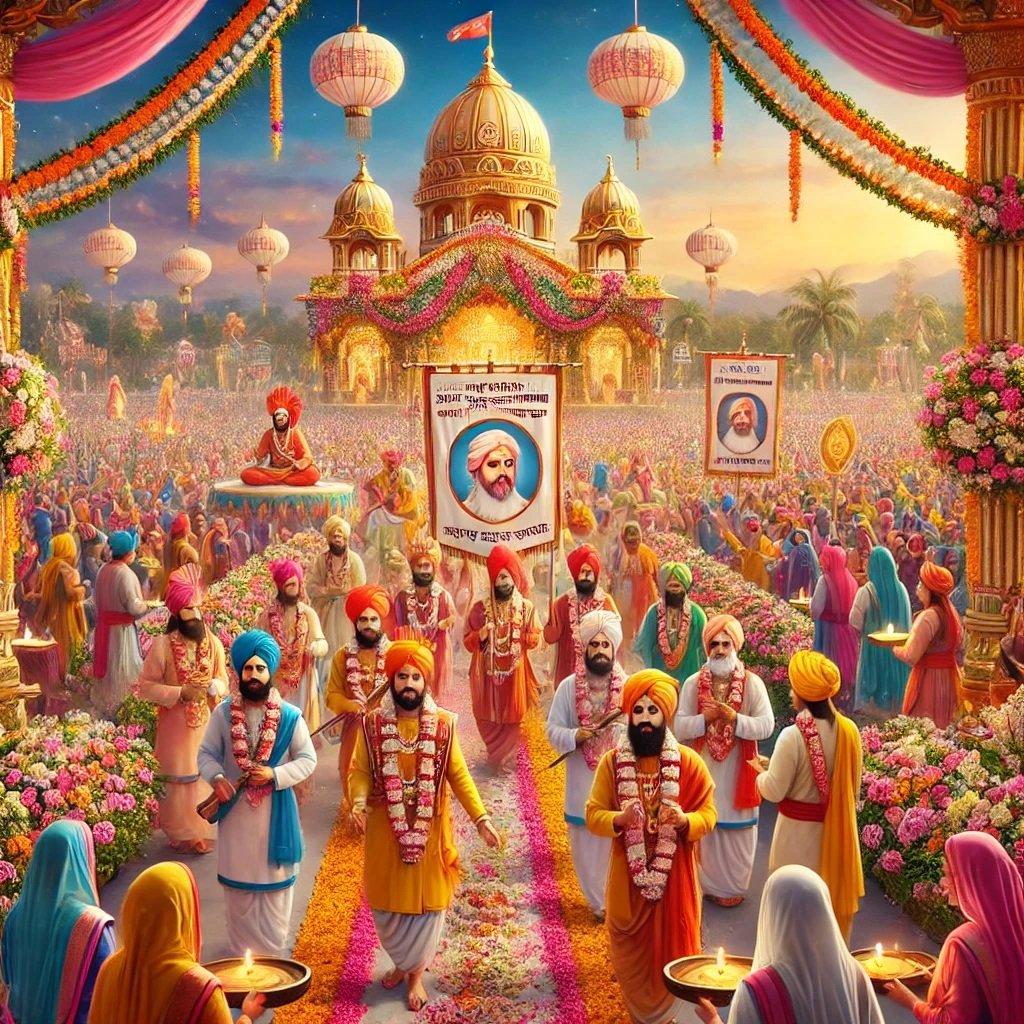
Sant Ravidas, also known as Raidas, was a 15th-century Indian saint, poet, philosopher, and social reformer. His teachings centered on equality, devotion to God, and social justice, which continue to inspire people across generations. Sant Ravidas Jayanti is celebrated every year to honor his birth anniversary. This occasion is particularly significant for followers of the Ravidassia community, as well as devotees of Bhakti movement traditions.
Early Life and Background
Sant Ravidas was born in the early 15th century in Seer Govardhanpur, Varanasi, Uttar Pradesh. He belonged to a family of cobblers, which was considered a lower caste in the rigid social hierarchy of that era. Despite facing caste discrimination, he devoted his life to spiritual pursuits and social reform.
From an early age, Sant Ravidas displayed signs of deep spirituality. Instead of engaging in traditional work, he spent much of his time in prayer, meditation, and helping the poor and needy. His wisdom and kindness attracted a large number of followers, including many from the upper castes.


Sant Ravidas was an ardent proponent of the Bhakti movement, which emphasized devotion to God over rituals and caste-based divisions. His philosophy was centered on love, equality, and devotion. Some of the key aspects of his teachings include.
Equality of All Human Beings: He rejected the caste system and believed that all people are equal in the eyes of God.
Importance of Devotion: He emphasized that true devotion to God does not require elaborate rituals or material offerings.
Simple Living and Compassion: He advocated for a life of simplicity, honesty, and selfless service.
Social Reform: He criticized social injustices and worked towards eradicating untouchability and discrimination.
Concept of Begumpura: He envisioned a society called Begumpura, which means “land without sorrow.” This utopian land was free from caste-based oppression and inequality.
Compositions and Contributions
Sant Ravidas expressed his thoughts and beliefs through numerous devotional songs and poems. Around 40 of his hymns were included in the Guru Granth Sahib, the holy scripture of Sikhism. His compositions are deeply spiritual and advocate love for God and humanity.
One of his famous couplets is
“Jo Har Ka Bhagat Naahi, So Kaun Kaaj Ka”
One who does not serve the Lord, what use is he
Association with Guru Nanak and Meera Bai
Sant Ravidas is believed to have met Guru Nanak, the founder of Sikhism. Their philosophies shared similarities, especially in advocating equality and devotion to one supreme God.
Additionally, Sant Ravidas was a spiritual guru to Meera Bai, the Rajput princess and poetess known for her devotion to Lord Krishna. She considered him her guide and mentor.
Sant Ravidas Jayanti
Sant Ravidas Jayanti is observed every year on the Magha Purnima (full moon day of the Magha month, according to the Hindu calendar). The day is marked with celebrations across India, particularly in states like Punjab, Uttar Pradesh, Maharashtra, and Madhya Pradesh.

Sant Ravidas Jayanti
Processions and Nagar Kirtans
Devotees take part in grand processions, singing his hymns and spreading his messages.
Prayers and Kirtans: Special kirtans (devotional songs) and prayers are organized at temples dedicated to Sant Ravidas.
Langars and Community Feasts: Free community meals (langars) are arranged, emphasizing his teachings of equality and unity.
Reading of His Compositions: His dohe (couplets) and hymns are recited to inspire followers.
Visit to Shri Guru Ravidass Janam Asthan Mandir: Devotees visit his birthplace in Varanasi, which houses a grand temple in his honor.
Impact and Legacy
Sant Ravidas’s teachings continue to be relevant in contemporary times. His messages of social harmony, equality, and devotion transcend religious and caste boundaries. Many communities, especially the Ravidassia community, consider him their foremost spiritual leader.
His thoughts influenced several movements advocating for social justice and caste reforms in India. Even today, his followers strive to live by his principles of human dignity, kindness, and devotion.
Conclusion
Sant Ravidas was not only a spiritual saint but also a social reformer who worked tirelessly against the caste system and discrimination. His legacy lives on through his hymns, teachings, and the annual celebrations of Sant Ravidas Jayanti. By remembering his contributions, we continue to draw inspiration from his vision of an egalitarian society where love, devotion, and equality prevail.

